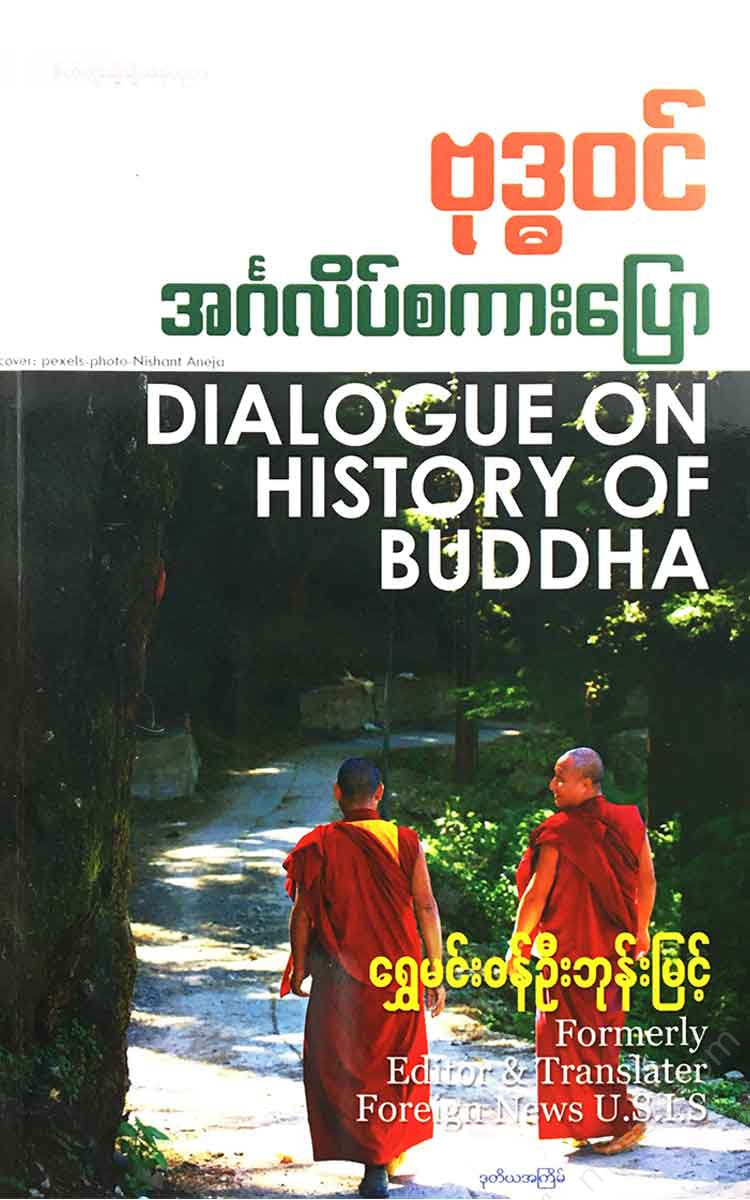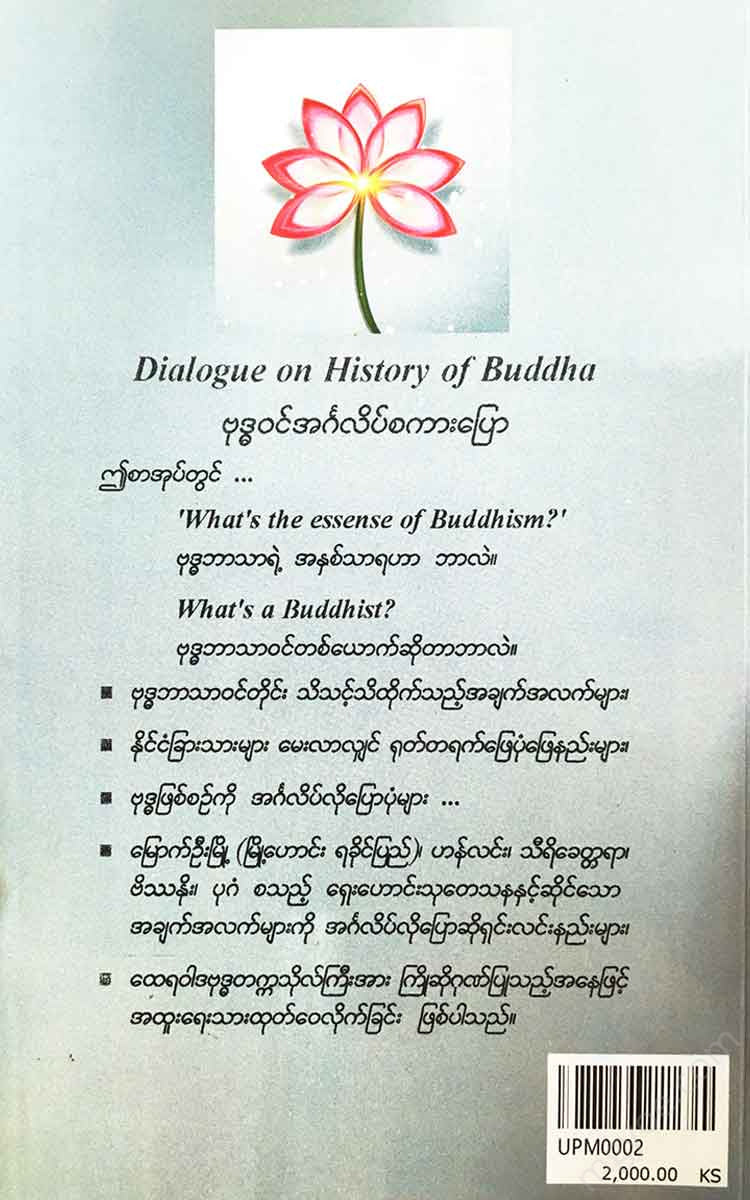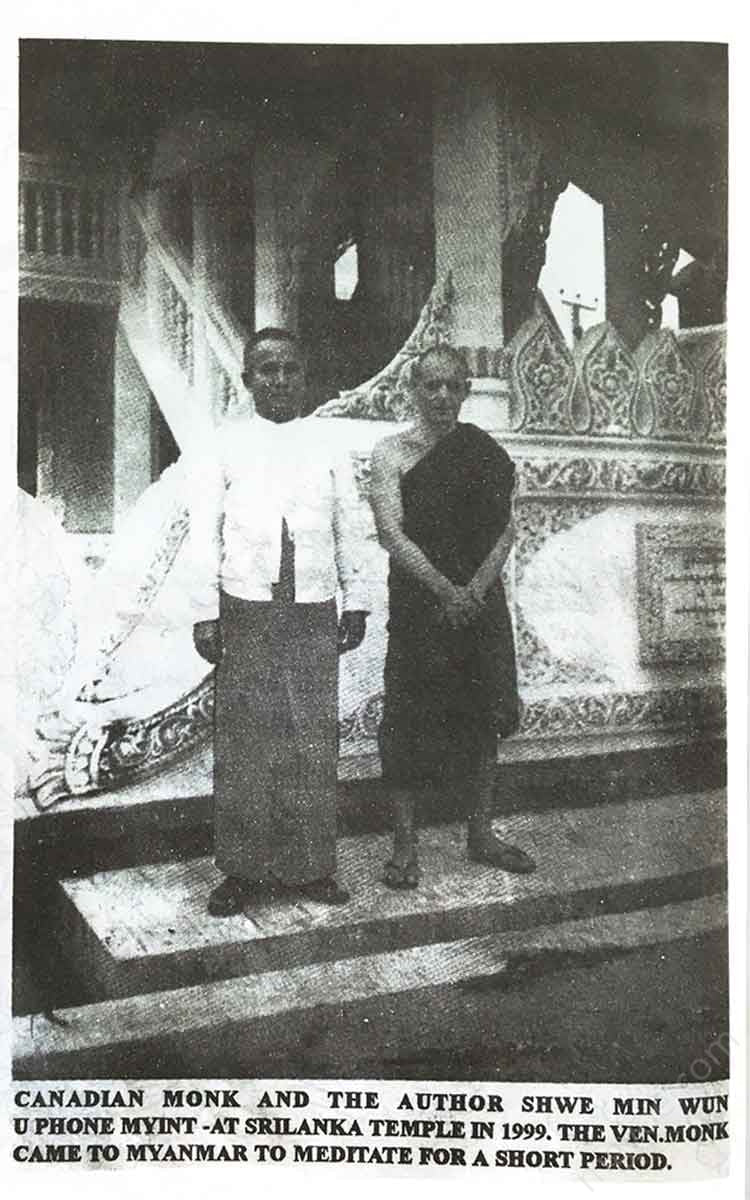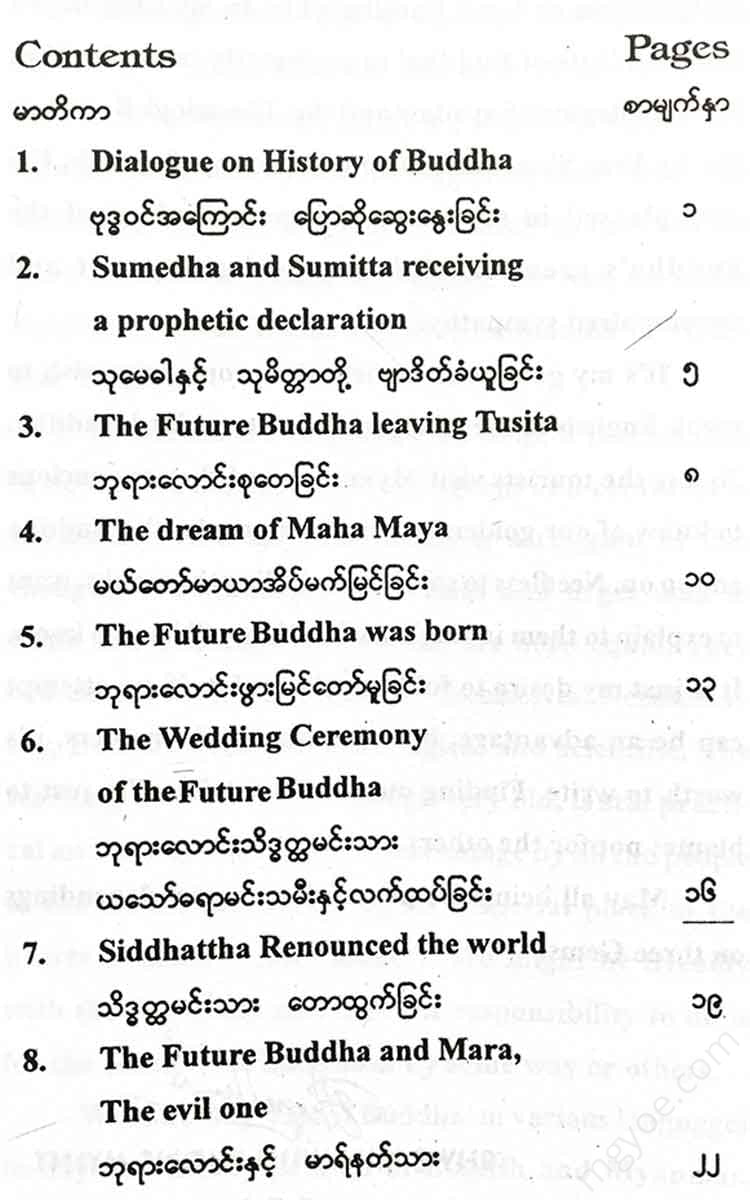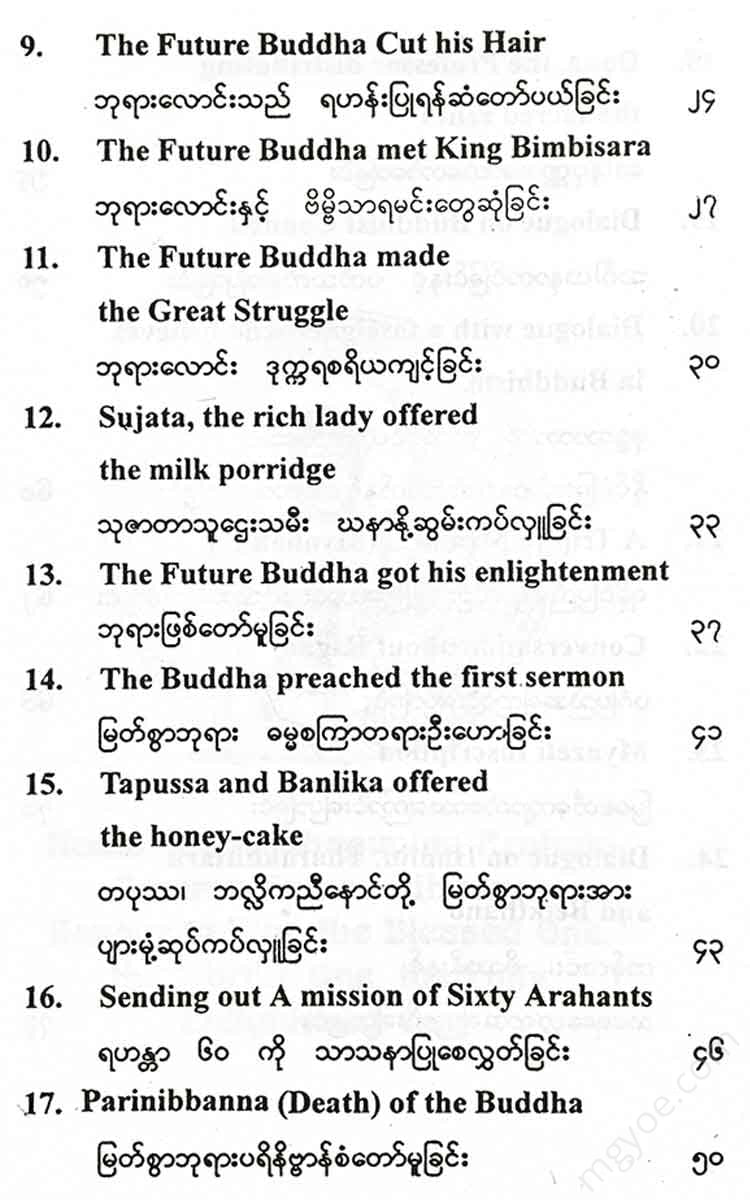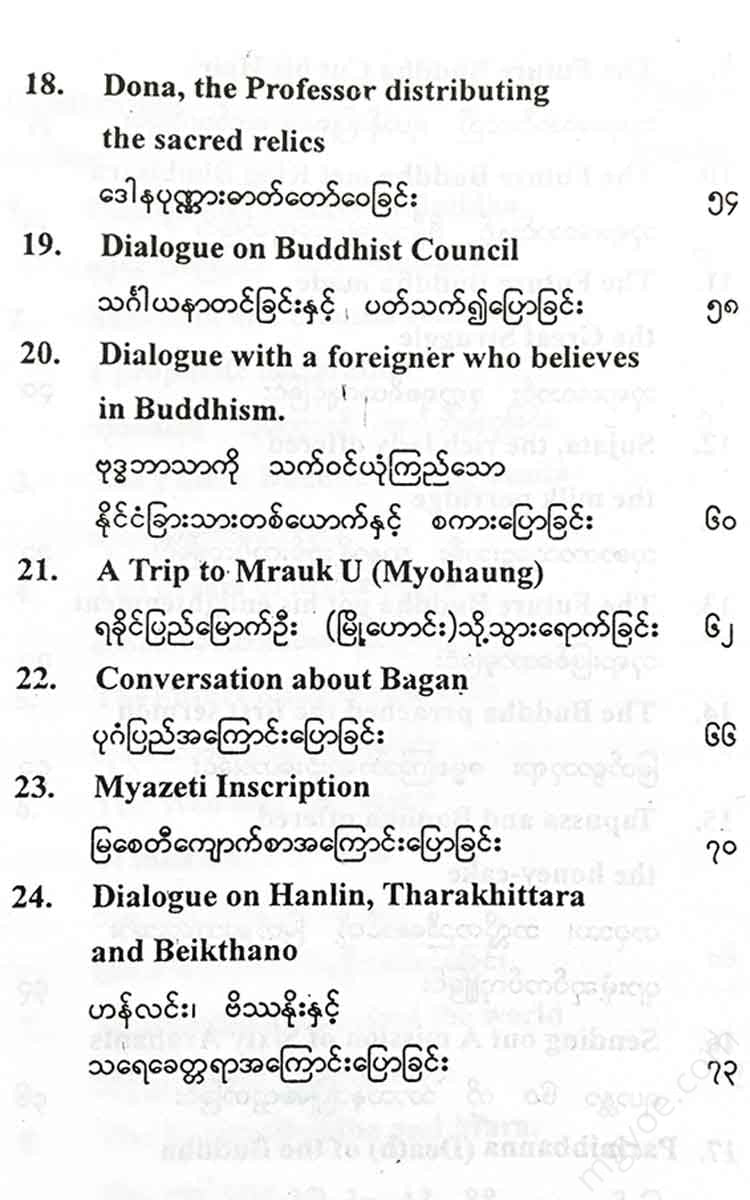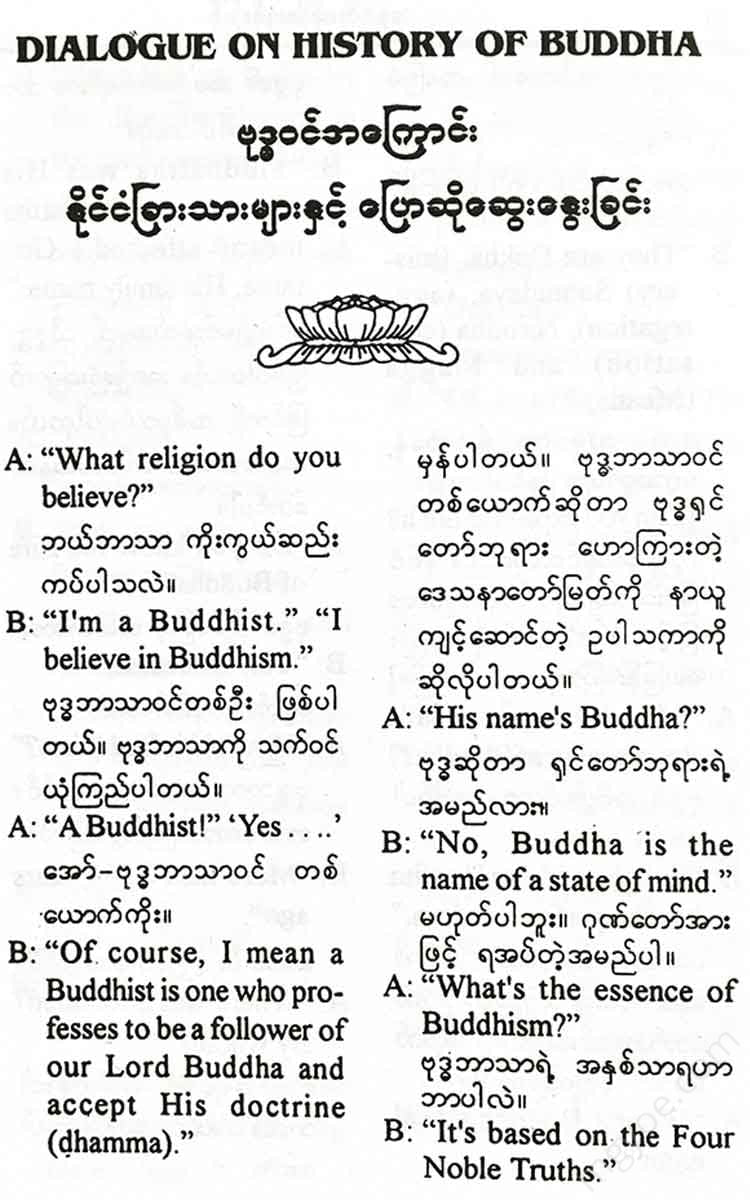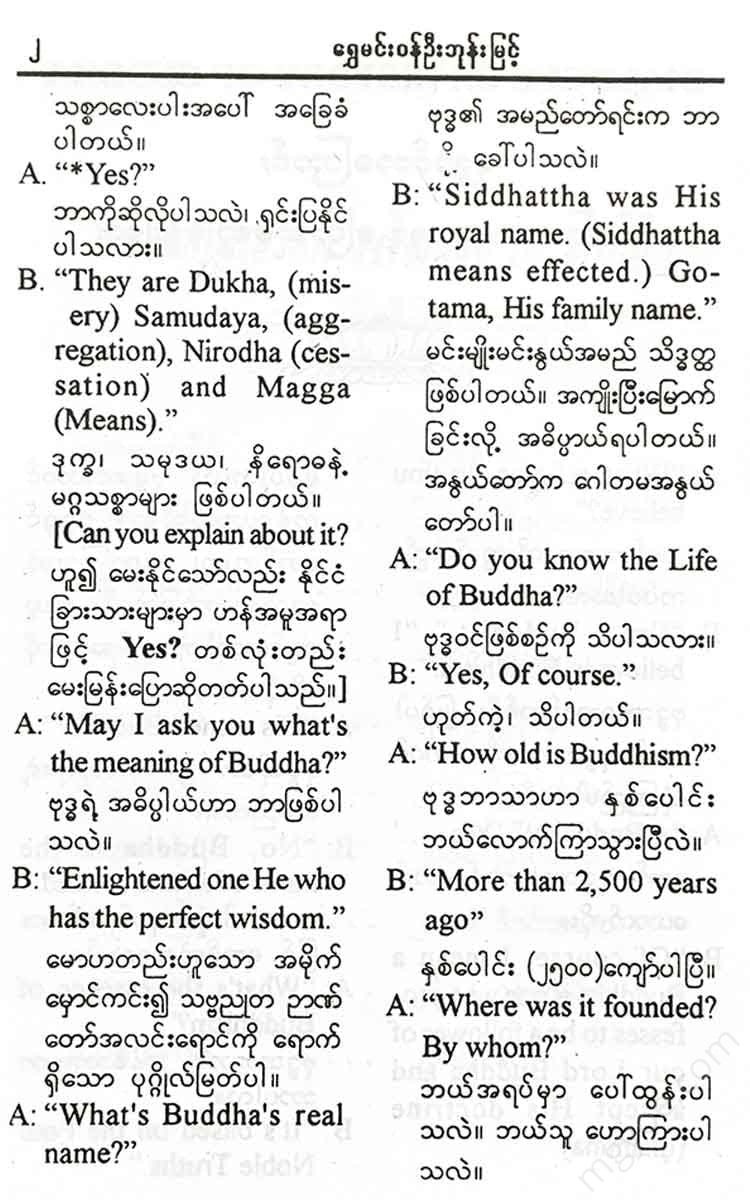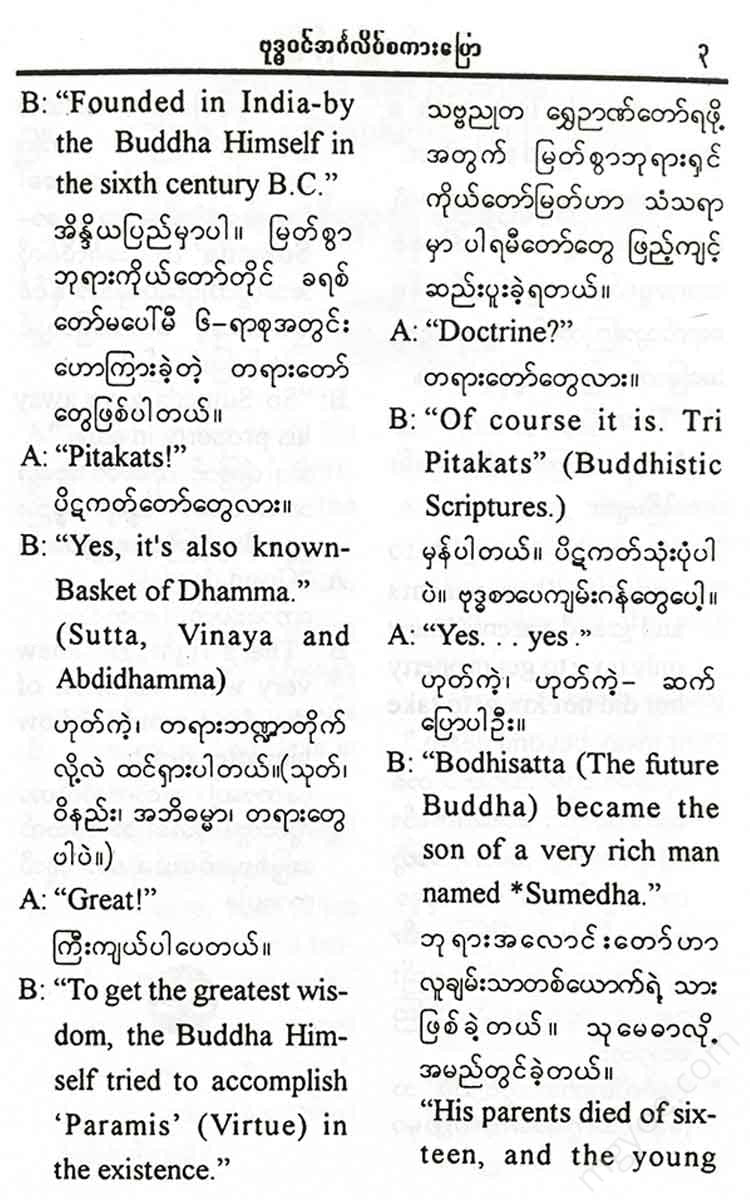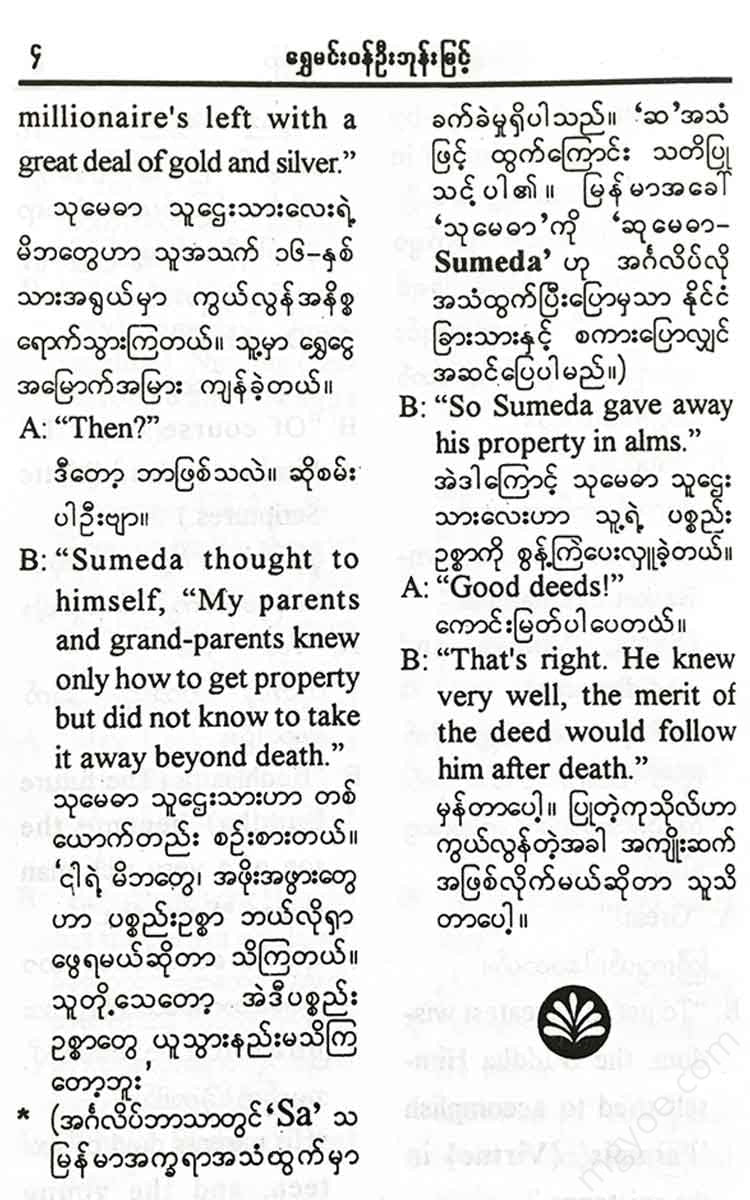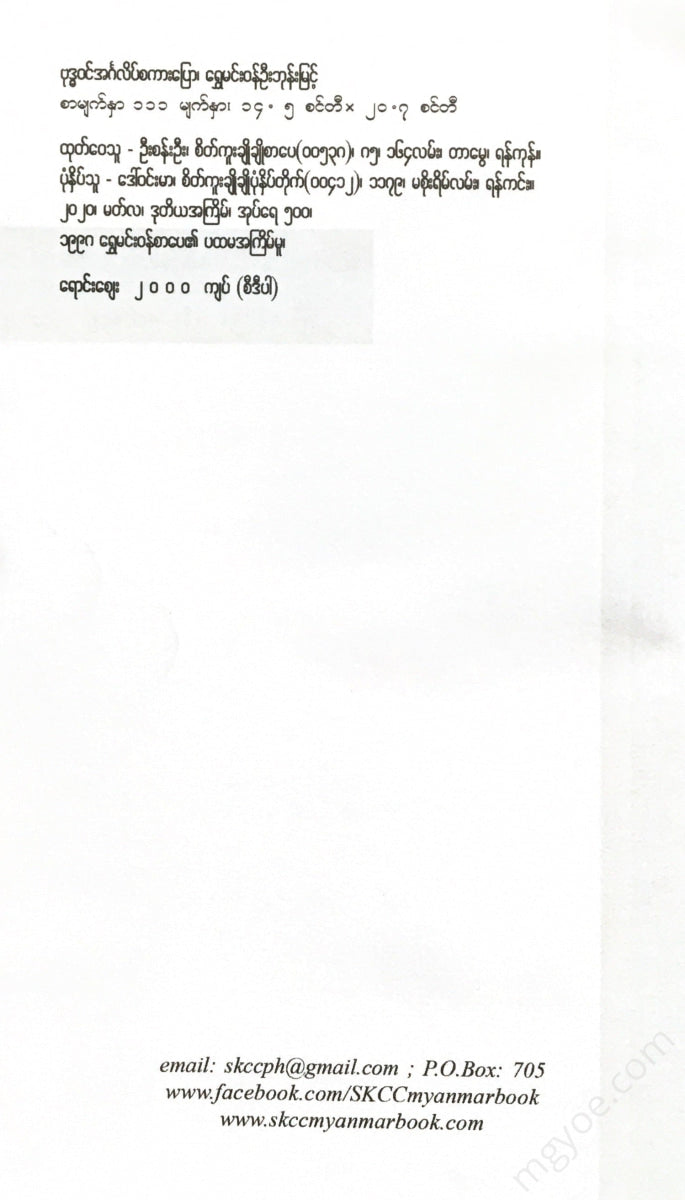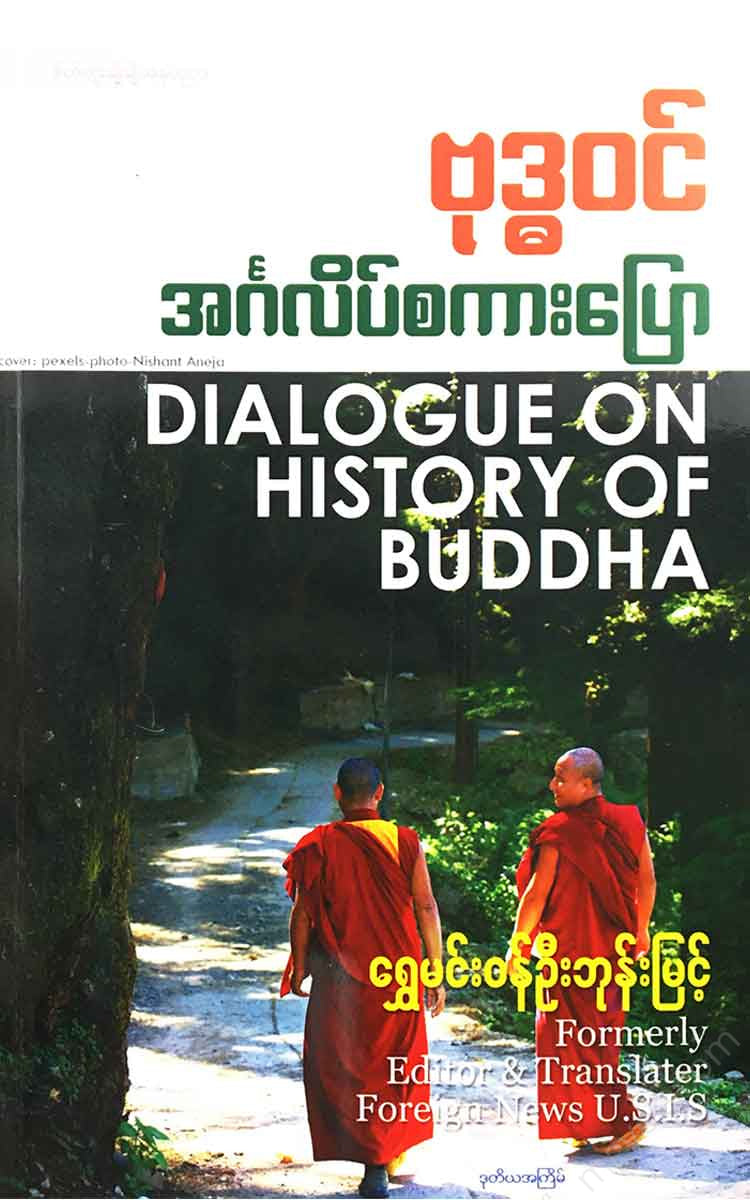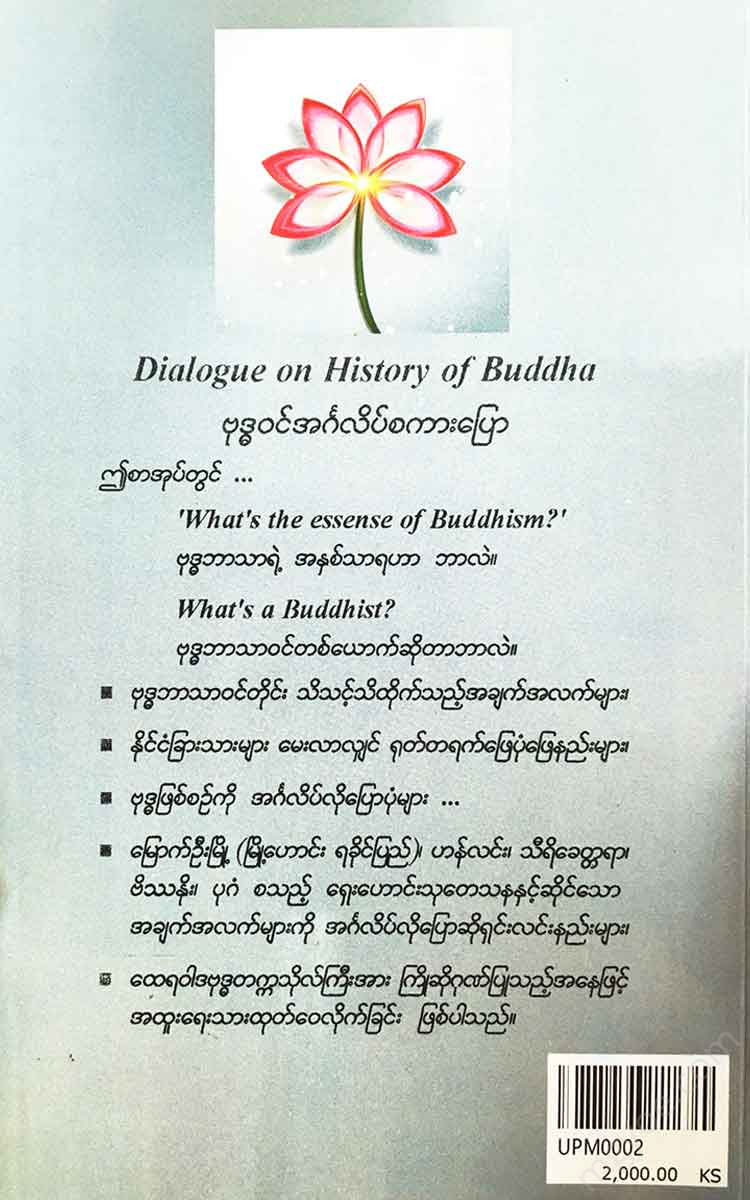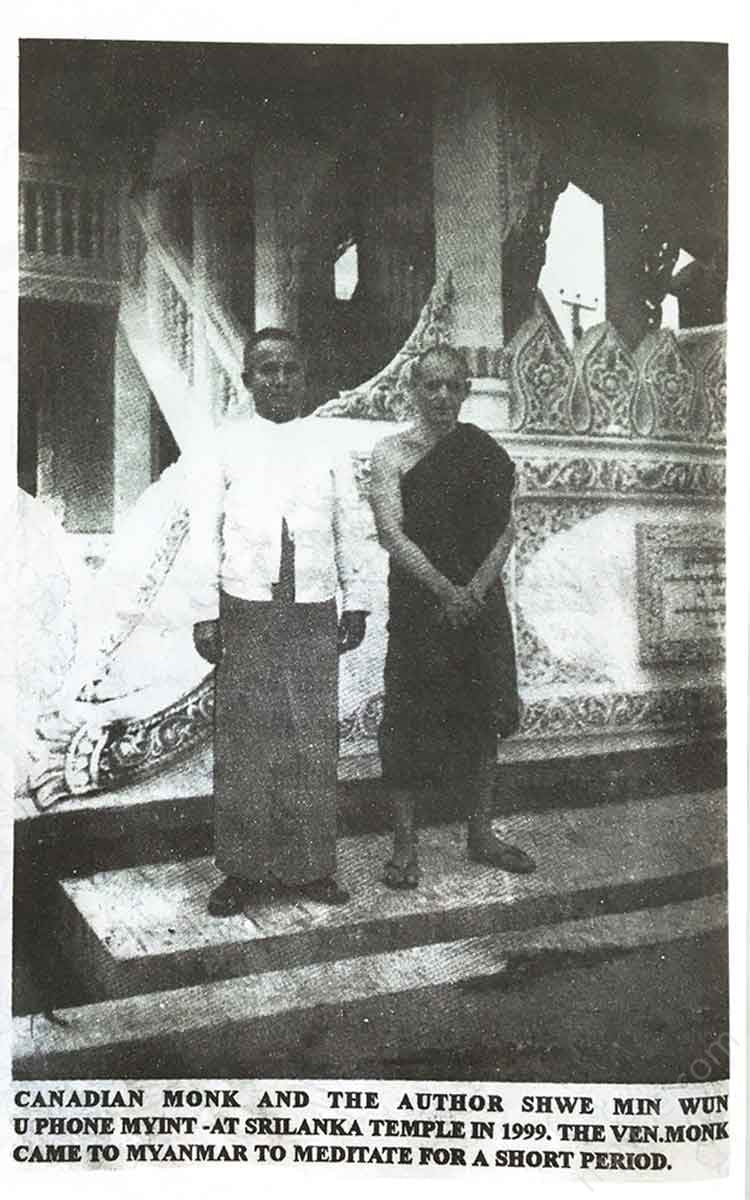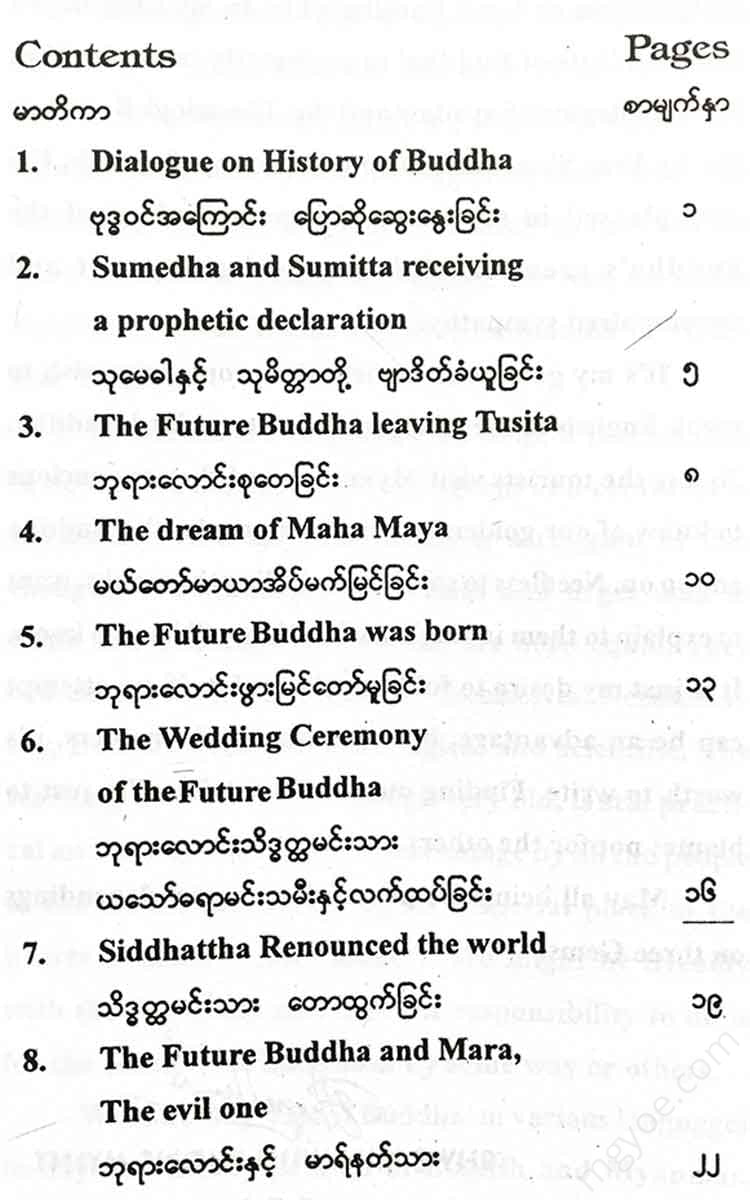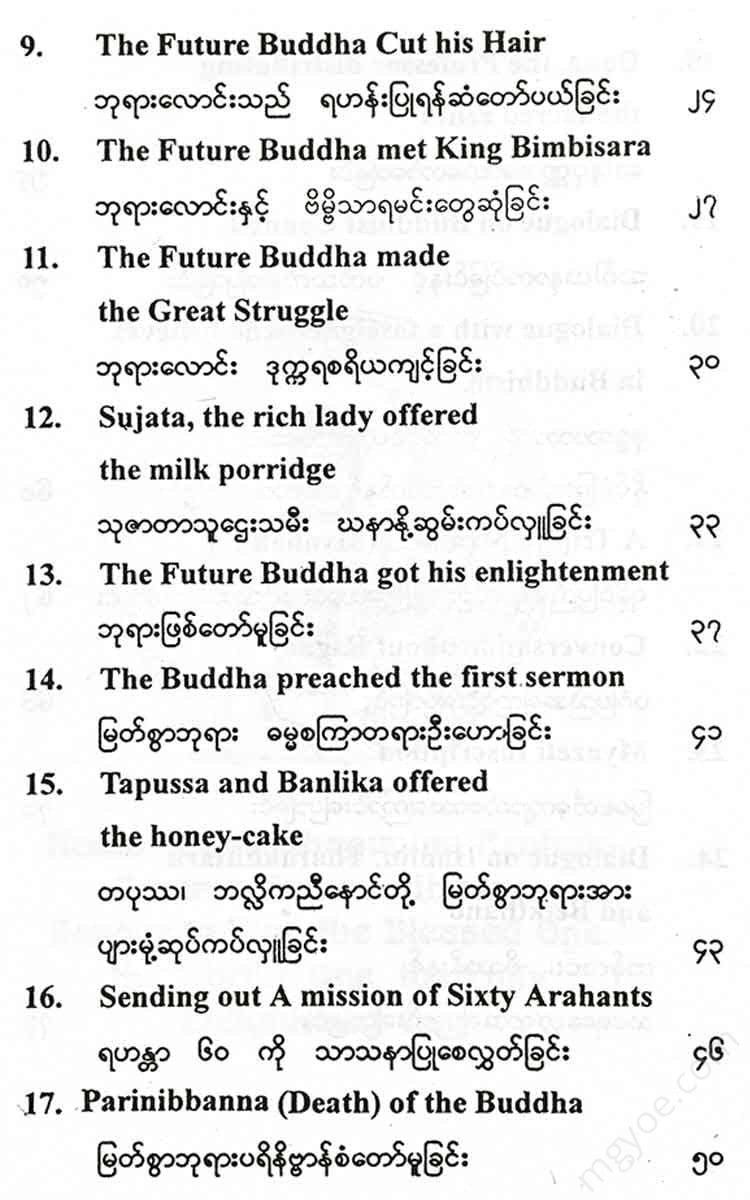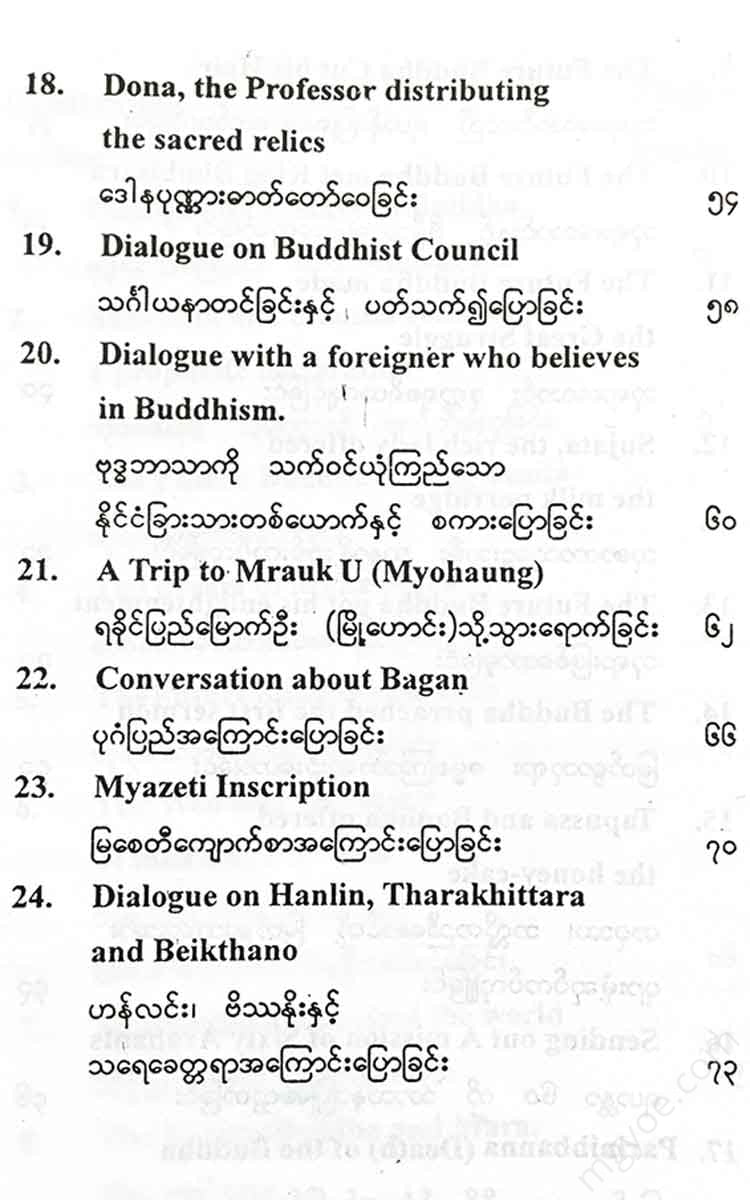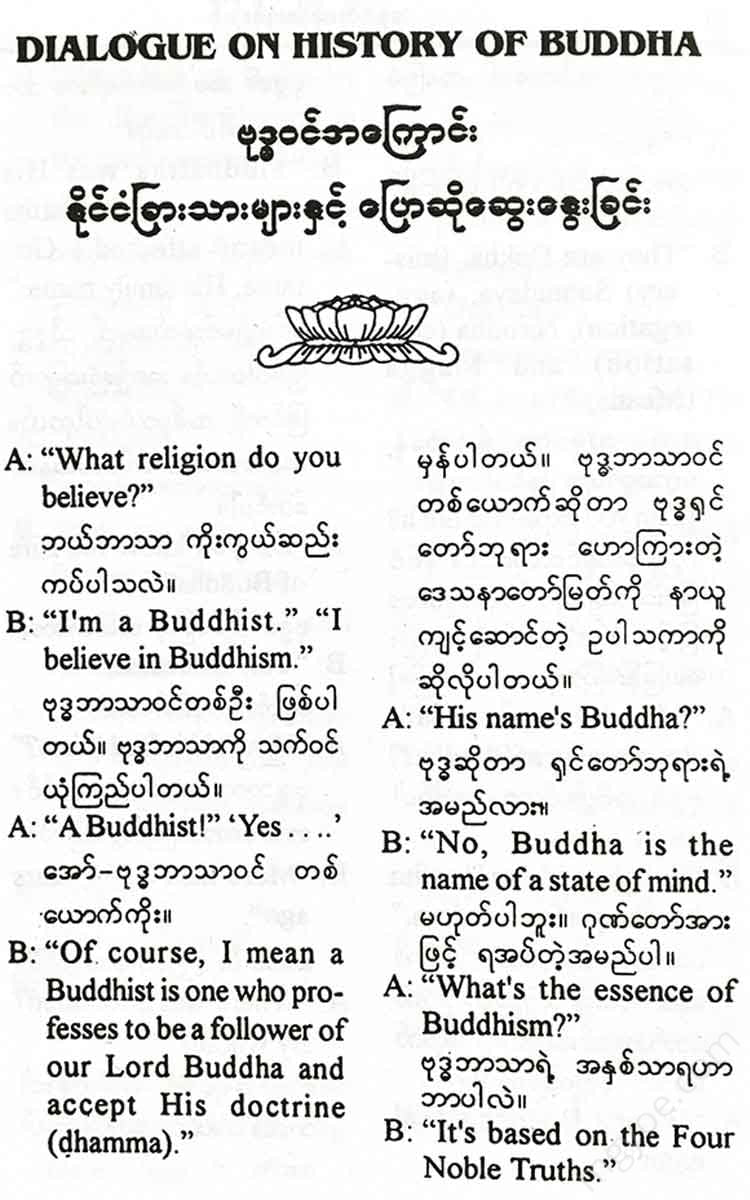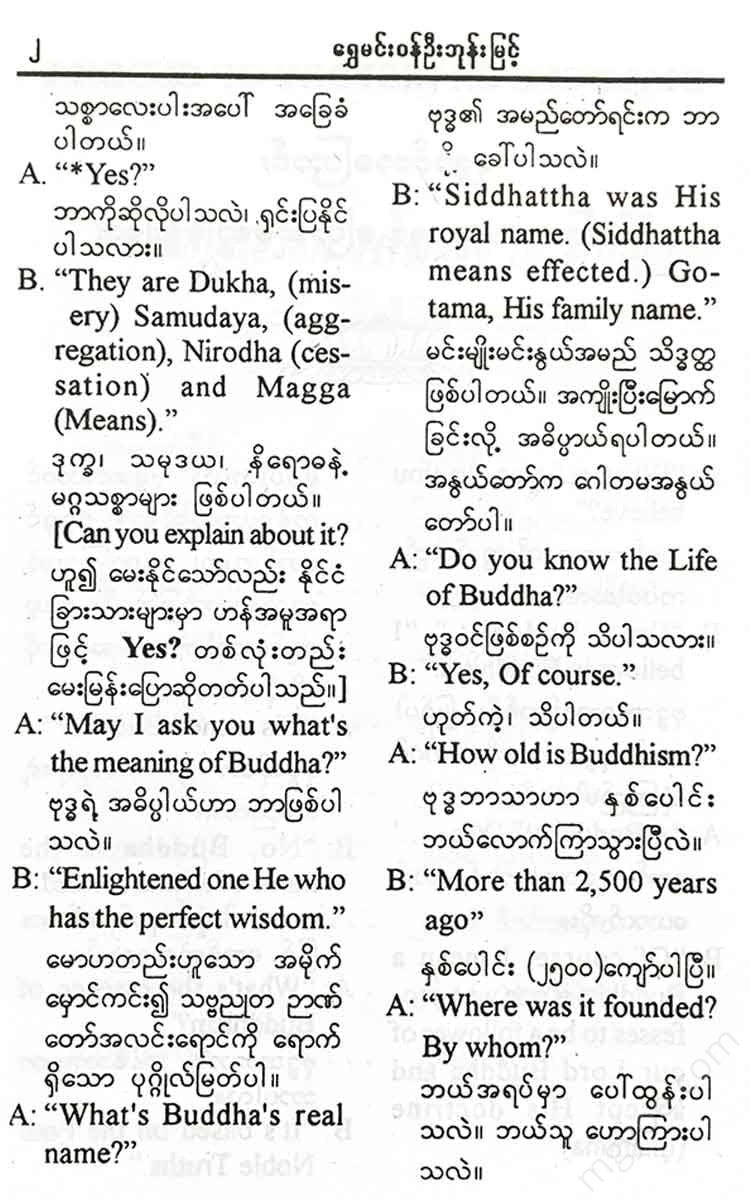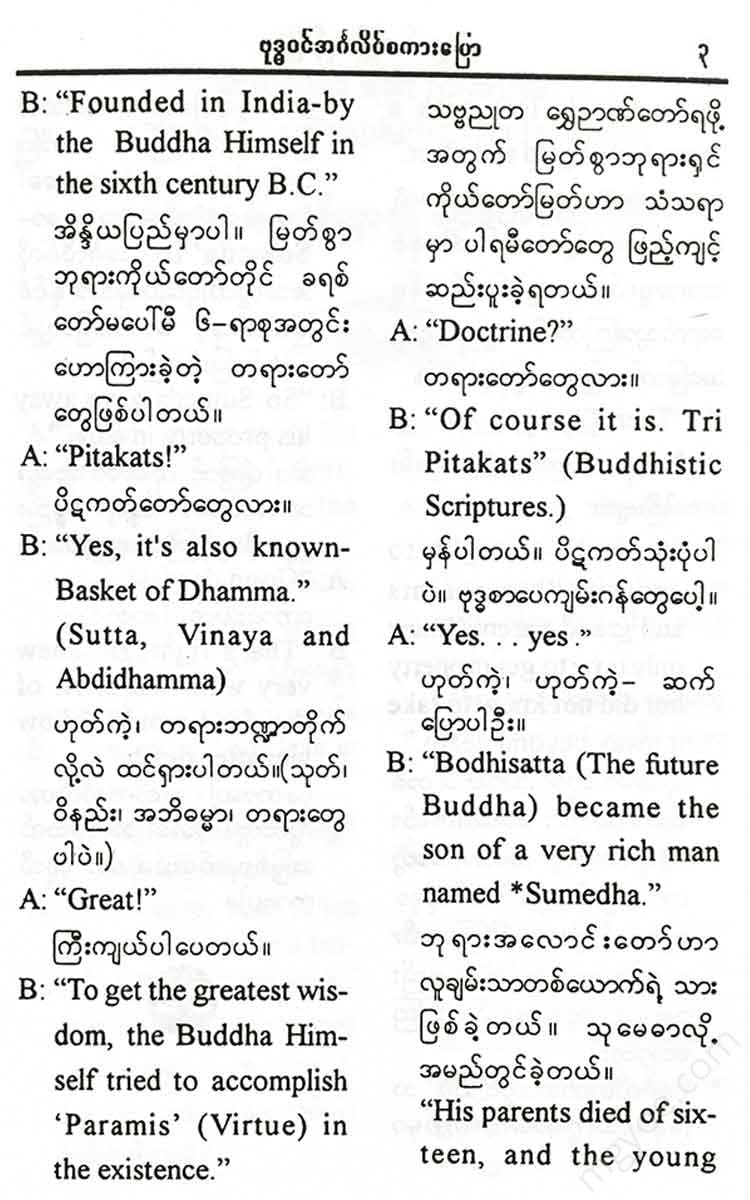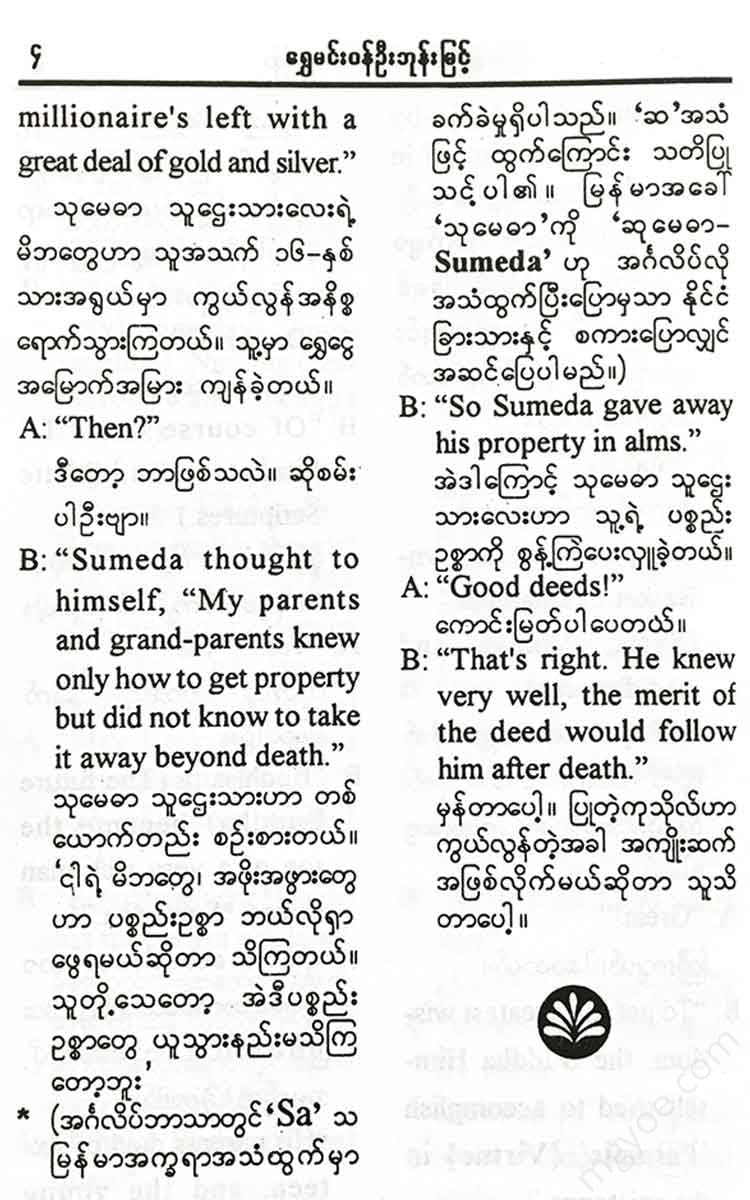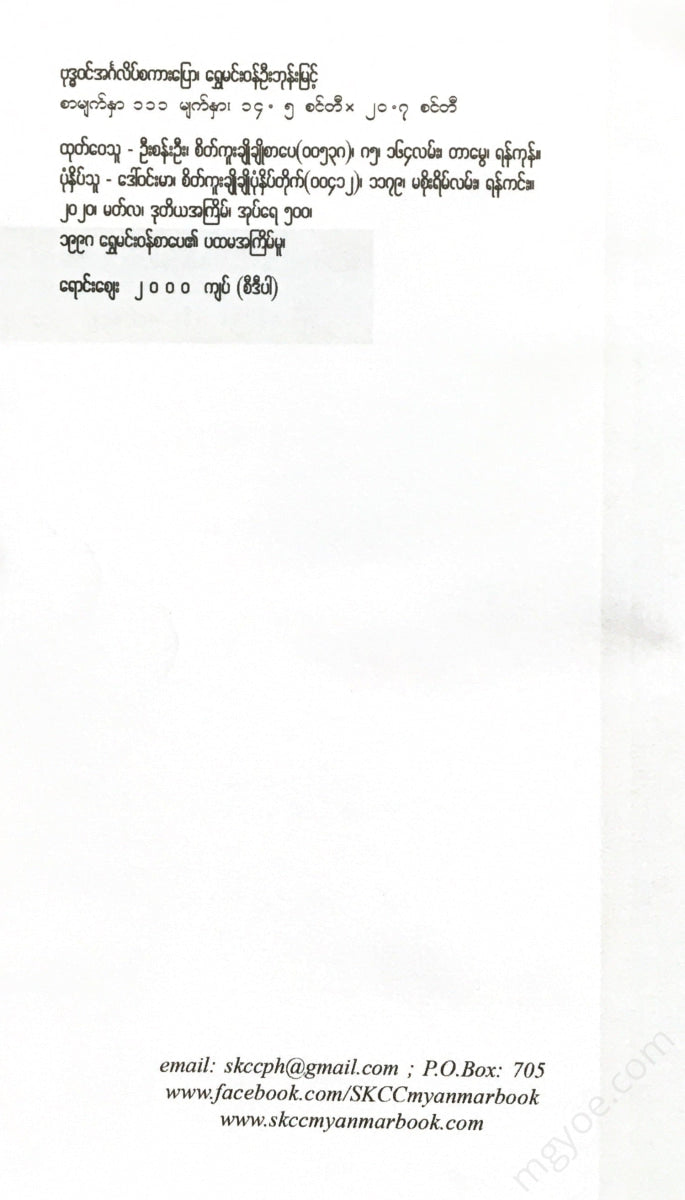စိတ်ကူးချိုချိုစာပေ
Shwe Min Wan U Phone Myint - Buddhist English Speaking
Shwe Min Wan U Phone Myint - Buddhist English Speaking
Couldn't load pickup availability
Dialogue on the History of Buddha
This book, Buddhist English, speaks...
'What's the essence of Buddhism?'
What is the essence of Buddhism?
What is a Buddhist?
What is a Buddhist? ..
Information every Buddhist should know.
When foreigners ask questions, how to give quick answers =
How to explain the Buddhist history in English.... How to explain archaeological information in English such as Mrauk-U (ancient city of Rakhine State), Hanlin, Sri Kshetra, Vishnu, and Bagan.
This is a special publication written to welcome and honor the Theravada Buddhist University.
DIALOGUE ON THE HISTORY OF BUDDHA
Talking to foreigners about Buddhism
A: "What religion do you believe?"
What religion do you practice?
B: “I'm a Buddhist.” "I believe in Buddhism."
I am a Buddhist. I believe in Buddhism.
A: “A Buddhist!” “Yes.... Oh, a Buddhist.”
B: “Of course, I mean a Buddhist is one who professes to be a follower of our Lord Buddha and accept His doctrine ( dhamma).” A Buddhist is one who professes to be a follower of our Lord Buddha and accept His doctrine (dhamma).
A: “His name's Buddha?" Is Buddha the name of the Buddha?
B: “No, Buddha is the name of a state of mind.” It is not a name earned by virtue.
A: “What's the essence of Buddhism?” What is the essence of Buddhism?
B: “It's based on the Four Noble Truths." It's based on the Four Noble Truths.
- **Yes?” What does that mean? Can you explain?
- "They are Dukha, (misery) Samudaya, (aggregation), Nirodha (cessation) and Magga (Means)."
The truths of suffering, origin, cessation, and the path.
Can you explain about it? You can ask, but foreigners often respond with a simple "Yes?" gesture.
A: “May I ask you what's the meaning of Buddha?
What is the meaning of Buddha?
B: “Enlightened one He who has the perfect wisdom.” A person who is free from the darkness of ignorance and has attained the light of omniscience.
A: "What's Buddha's real name?"
What is the real name of Buddha?
B: "Siddhattha was His royal name. (Siddhattha means effected.) Gotama, His family name".
The royal family name is Siddhartha. It means "fulfillment". His lineage is the lineage of Gautama.
A: “Do you know the Life of Buddha?” Do you know the story of Buddha’s enlightenment?
B: “Yes, of course." Yes, I know.
A: “How old is Buddhism?” How many years has Buddhism been around?
B: “More than 2,500 years ago” More than 2,500 years ago.
A: “Where was it founded? By whom?" Where did it originate? Who preached it?
B: “Founded in India-by the Buddha Himself in the sixth century BC.” These are teachings preached by the Buddha Himself in the 6th century BC.
A: “Pitakats!” Pitakas?
B: "Yes, it's also known-Basket of Dhamma." (Sutta, Vinaya and Abdidhamma)
Yes, it is also known as the treasury of the Dhamma. (The Sutta, Vinaya, Abhidhamma, Dhamma.)
A: “Great!” It is great.
B: "To get the greatest wisdom, the Buddha Himself tried to accomplish 'Paramis' (Virtue) in existence".
To attain the golden wisdom of omniscience, the Buddha himself had to perfect his perfections in samsara.
A: Doctrine?” Doctrines?
What is the meaning of Buddha?
| How long has it been? The foolishness of ignorance
The one who is free from darkness and omniscient, Godzacue:cope copes.
Who preaches? I sidan
What?
To attain the golden wisdom of Buddha, speak English.
For the Buddha
Your Majesty is a cycle.
In order to fulfill the perfections, God himself had to acquire Christ.
These are sermons preached in the 6th century before the Buddha's birth.
B: “Of course it is. Tri Pitakats” (Buddhist Scriptures.) That’s right. The three Pitakas. Buddhist scriptures.
A: “Yes... yes." Yes, yes - keep talking.
B: "Bodhisatta (The future Buddha) became the son of a very rich man named *Sumedha."
The Buddha was born to a wealthy man. He was named Sumedha.
"His parents died of six teens, and the young millionaire's left with a great deal of gold and silver"
Sumedha, a wealthy son, died when he was 16 years old. He was left with a large amount of gold and silver.
A.”Then” So what happened? Tell me.
B: "Sumeda thought to himself, "My parents and grand-parents only knew how to get property but did not know how to take it away beyond death."
"The rich man, Sumedha, thinks alone. My parents and grandparents knew how to find wealth. When they die, they don't know how to take their wealth."
(There is a difficulty in pronouncing the Burmese letter 'Sa' in English. It should be noted that it is pronounced with the 'ສ" sound. The Burmese word "ສົມາວາ" is pronounced as "ສົມາວາ-Sumeda" in English, so it will be convenient to speak to foreigners.)
B: "So Sumeda gave away his property in alms."
That is why the rich man's son, Sumedha, gave away his wealth.
A: “Good deeds!” It is good.
B: "That's right. He knew very well; the merit of the deed would follow him after death."
That's right. He knows that the good deeds he does will have consequences when he dies.
